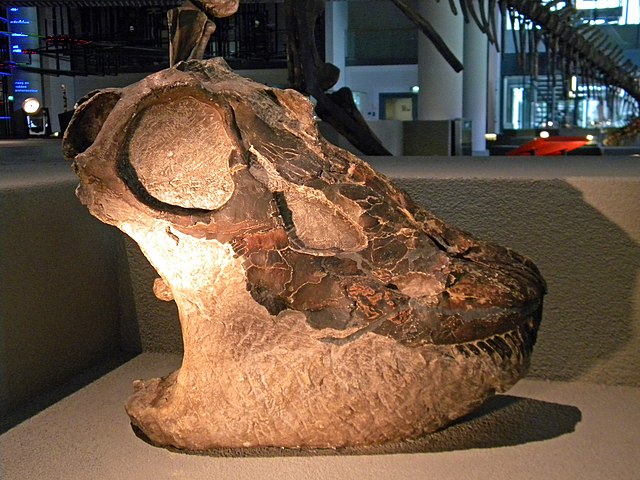Union Alum Uncovers Porous Diplodocus Scales
Diplodocus was a giant herbivorous dinosaur that lived in the Late Jurassic period, from 155-145 million years ago.
January 26, 2023
Recent scientific advances show that Diplodocus may have cooled itself off using heat transfer through its scales. Tess Gallagher ‘22 was involved with a team excavating a site called the Mother’s Day Quarry in Montana, according to ArsTechnica.
The Mother’s Day Quarry site has produced 15 fossilized Diplodocus juveniles from about 145 million years ago. The team found six different types of sauropod scales that were observed on the skin, four being new to science The skin samples were likely preserved as a result of scavengers aiding in the preservation of the Diplodocus carcasses.
If an animal is partially eaten, those wounds would enable gasses and liquids to escape the body, slowing down its decomposition. The skin will eventually deflate and if used for a long time, the skin will deflate, and when buried, it increases the chances of the carcass being preserved.
While observing the scales under a microscope, she found a series of black dots lining the connections between the scales. The black dots were actually connected to each other. The black dots in the sediment within the skin were the tips of pores poking out of the sand.
Gallagher proposed that the porous scales helped to increase surface area, in accordance with the square-cube law. The square-cube law is the concept that the larger the volume, or internal structure of an organism, the smaller the overall surface area, or the skin that is in contact with the air.
In large animals, a smaller total surface area leads to problems with overheating. Elephants are a relevant example of an existing animal that uses these principles for temperature regulation. To combat heat buildup, they evolved wrinkled skin, which gives them more surface area, and they use several strategies such as wading in and showing themselves with water to cool down their bodies.
Gallagher also explored engineering concepts that could potentially explain the usefulness of porous skin for such a large animal. Metal foam heat sinks, composed of porous metal foam, increase heat exchange. Their porosity helps to lower the temperature of devices like processors. There is still much work to be done to more fully understand the properties of the porosity of Diplodocus scales.







